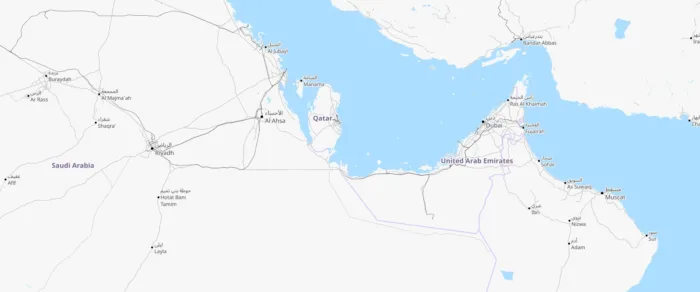
When considering investment opportunities in the vibrant financial centers of Abu Dhabi, Doha, Dubai, Muscat, and Riyadh, a Gateway to Growth in the Middle East, a range of possibilities opens up for investors in the Middle East. These cities, each with their unique charm and potential, represent pillars of economic growth and development in the region. From the modernity and economic diversity of Doha to the innovation and luxury of Dubai, and through Riyadh’s economic transformation with Vision 2030, each destination offers a fascinating scenario for those looking to expand their financial horizons.
We will delve into the geographical, economic, and cultural characteristics Abu Dhabi, Doha, Dubai, Muscat, and Riyadh, highlighting their strengths and investment opportunities. Immerse yourself in this journey through three gems of the Middle East and discover how these dynamic and ever-evolving cities can be the key to diversifying your portfolio and capitalizing on the growth potential in a prosperous region.
When considering investment opportunities in Abu Dhabi, Doha, Dubai, Muscat, and Riyadh, one delves into a realm of exceptional prospects in these Middle Eastern cities.
Abu Dhabi:
Abu Dhabi, the capital of the United Arab Emirates, is located on an island in the Arabian Gulf. The city is known for its modern skyline, luxurious resorts, and cultural landmarks such as the Sheikh Zayed Grand Mosque. Geographically, Abu Dhabi is strategically positioned, serving as a gateway between the East and the West.
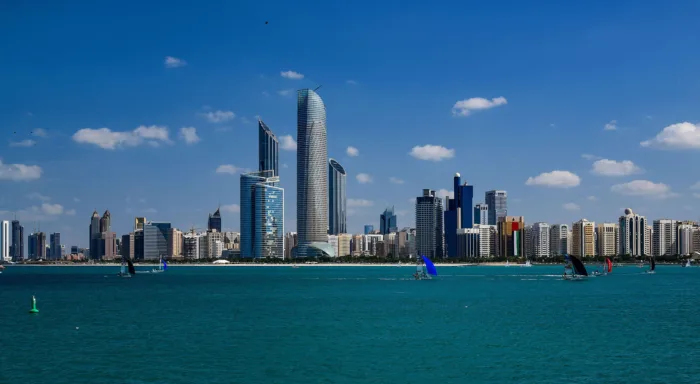
Abu Dhabi’s economy is primarily driven by the oil and gas industry, with the Emirate possessing significant oil reserves. However, in line with its economic diversification efforts, Abu Dhabi has been investing in sectors such as finance, tourism, real estate, and renewable energy. The city is home to major financial institutions and has established free zones to attract international businesses. Abu Dhabi’s commitment to sustainable development and its ambitious vision for the future have positioned it as a global player and a hub for innovation and investment in the Middle East.
Doha:
Doha, the capital of Qatar, situated on the coast of the Persian Gulf, stands out as a growing financial hub with a diverse economy. Known for its natural gas reserves and advancements in education, Doha has positioned itself as a key player in the region’s economic landscape. The ambitious Qatar National Vision 2030 has been a driving force behind the city’s infrastructural development, fostering opportunities in sectors like construction, renewable energy, and tourism. With iconic landmarks such as the Aspire Tower and the Museum of Islamic Art, Doha blends modernity with a rich cultural heritage, making it an attractive destination for investors seeking stability and growth.
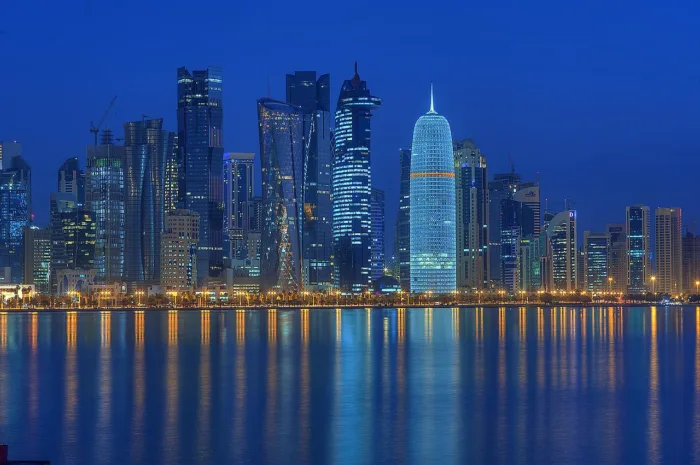
Geographically, Doha’s strategic location on the Arabian Peninsula has facilitated its emergence as a major transportation and logistics hub. The city’s Hamad International Airport serves as a crucial link between East and West, enhancing its connectivity and accessibility for businesses and travelers alike. Economically, Qatar’s vast natural gas reserves have underpinned Doha’s prosperity, fueling investments in various sectors beyond energy, including finance, real estate, and technology. The city’s focus on sustainable development and diversification has bolstered its resilience and attractiveness to investors looking for long-term opportunities in a stable environment.
Dubai:
Dubai, located along the coast of the Persian Gulf, is synonymous with modern architecture, a dynamic business environment, and a luxurious lifestyle. This global city has transformed itself into a leading financial and commercial center, drawing investors from around the world. With a skyline dominated by iconic structures like the Burj Khalifa and the Dubai Marina, Dubai showcases a blend of innovation and opulence that defines its unique appeal. The city’s strategic location at the crossroads of Europe, Asia, and Africa has made it a pivotal point for international trade and investment.
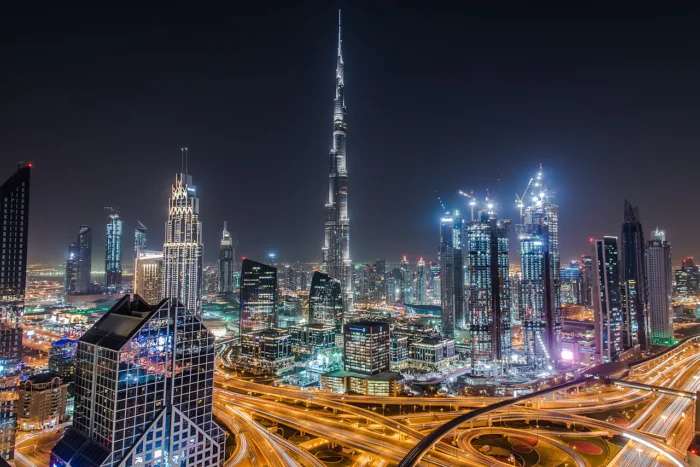
From a geographical perspective, Dubai’s artificial islands, such as the Palm Jumeirah, exemplify the city’s ambitious engineering feats and dedication to creating distinctive urban landscapes. Economically, Dubai’s diversification beyond oil has been a key driver of its success, with sectors like tourism, real estate, and technology playing significant roles in its economic growth. The Dubai International Financial Centre (DIFC) has established itself as a prominent financial hub, attracting businesses and investors seeking a gateway to the Middle East and beyond. Dubai’s commitment to innovation and entrepreneurship has fostered a vibrant startup ecosystem, positioning the city as a hub for tech-driven ventures and digital innovation.
Riyadh:
Riyadh, the capital of Saudi Arabia, located in the heart of the Arabian Peninsula, is undergoing a significant economic transformation driven by the ambitious Vision 2030 reform agenda. This vision aims to diversify the Saudi economy, reduce its dependence on oil, and open up new opportunities for investment and growth. Riyadh’s strategic position inland has historically been associated with its role as a political and administrative center, but recent developments have seen a shift towards economic diversification and modernization.
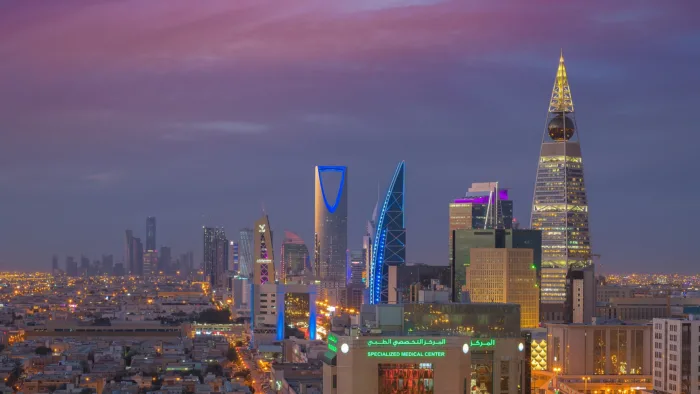
Geographically, Riyadh’s central location within Saudi Arabia positions it as a pivotal hub for commerce and industry, with extensive transport networks connecting it to key regional markets. The city’s economic landscape has been evolving rapidly, with a focus on sectors like renewable energy, technology, and entertainment to drive growth and innovation. The King Abdullah Financial District (KAFD) symbolizes Riyadh’s ambition to become a leading financial center in the region, attracting domestic and international investors looking to capitalize on the city’s expanding opportunities.
Muscat:
Muscat, the capital of Oman, is located on the northeastern coast of the Arabian Peninsula, bordering the Arabian Sea. The city is known for its stunning natural landscapes, including rugged mountains and beautiful beaches. Its strategic location has made Muscat a significant trading port throughout history, connecting the Middle East with the Indian Ocean and beyond.
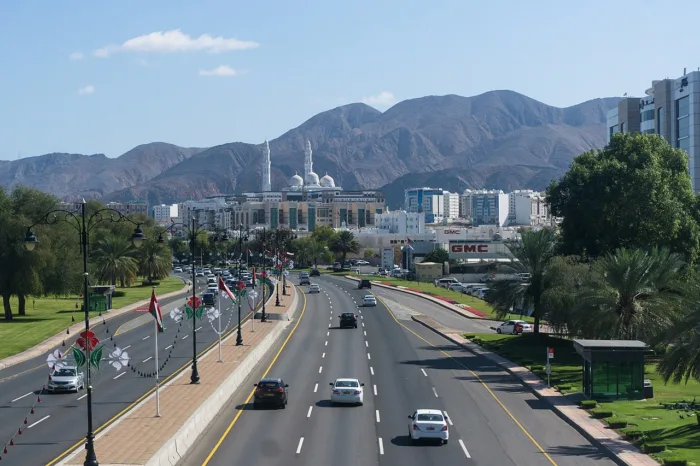
Economically, Muscat has a diverse economy with sectors such as oil and gas, tourism, logistics, and manufacturing contributing to its growth. The oil and gas industry has been a crucial driver of the Omani economy, and Muscat serves as a major center for oil and gas companies. In recent years, Oman has been focusing on diversifying its economy, with initiatives to develop sectors like tourism, logistics, and renewable energy. Muscat’s commitment to sustainable development and preserving its cultural heritage has made it an attractive destination for investment in these sectors.
These cities present a gateway to a wide range of opportunities in the Middle East. Each city offers a unique combination of economic strengths, geographic advantages and cultural richness that attracts investors seeking growth, stability and innovation. By understanding the distinctive characteristics and potential of these cities, investors can strategically position themselves to benefit from the dynamic growth and development that shape the future of the Middle East. Explore the investment landscape of Doha, Dubai and Riyadh to embark on a journey towards prosperous and sustainable returns in this dynamic region.
#AbuDhabi #Doha #Dubai #Muscat #Riyadh
#investinSaudiArabia #investinQatar #investinUnitedArabEmirates #investinOman
#SaudiArabai #Qatar #UnitedArabEmirates #Oman

Team ProdAfrica
team@prodafrica.com